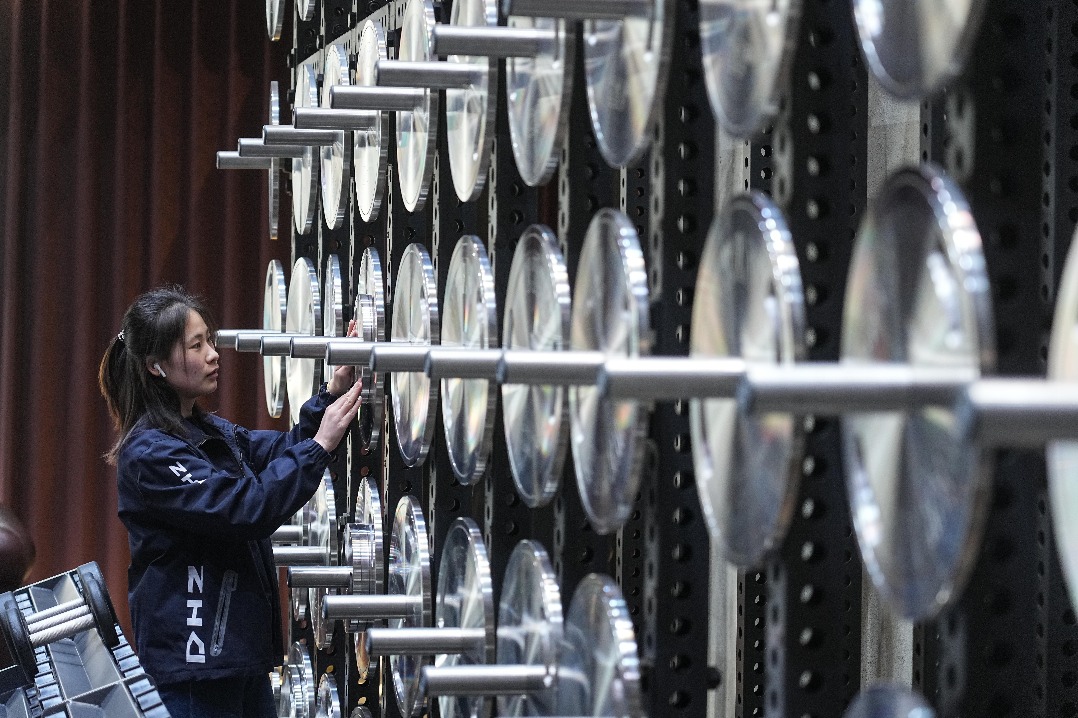Pilot tax trial likely to help stabilize home market


The pilot real estate tax to be levied in select regions in the coming five years will not only help stabilize housing markets in trial cities, but also advance the nation's property taxation legislation and reform, which are beneficial to the stable and healthy development of the sector over the long run, said industry experts.
During a meeting of the Standing Committee of the National People's Congress, a decision was made by China's top legislature to authorize the State Council, the country's Cabinet, to pilot property tax reforms in several regions, reported Xinhua News Agency on Saturday.
The pilot real estate tax comes amid consistent efforts to tame home prices and ensure the principle of "houses are for living in, not for speculation". The move is vital for the nation's pursuit of common prosperity, according to Li Qilin, chief economist at Shanghai-listed Hongta Securities.
Once the property tax is established as a long-term mechanism for the real estate market, other regulatory measures will be moderated so as not to generate big market fluctuations, Li said.
"This will actively and steadily promote the legislation and reform of property taxes, guide reasonable residential consumption and economical use of land resources, and propel the stable and healthy development of the real estate market," Xinhua reported.
Ren Zeping, chief economist at Soochow Securities, said he believes the new tax embodies strict implementation of the thinking that houses are for living in rather than for speculation. Under the pilot tax, the cost of owning properties will be heightened, which is unwelcome news for speculative investors with properties and high-end residential apartments in their investment portfolio.
Trial regions are likely to be cities under pressure to rein in overheated housing markets, such as those in the Yangtze River Delta region, the Pearl River Delta region and the Beijing-Tianjin-Hebei region, Ren said.
The tax will be collected from properties both for residential and nonresidential uses, but will not apply to legally owned rural land and built-up residential properties on such land. Taxpayers of the new real estate tax will be actual land users and property owners, Xinhua reported.
The State Council will determine specific regions to trial the tax and formulate details of the pilot scheme. Local governments in selected pilot areas will work out specific implementation measures, the report added.
"Such a statement shows that the real estate tax trial measures are going to vary among cities, and only properties located in trial regions will face the new taxes," said Jia Kang, chief economist of the China Academy of New Supply-Side Economics.
The measures are in accordance with local situations and will better fit specific situations region-by-region, and in the meantime, the accumulated experience will support the nation's property tax legislation over the long term, Jia said.
The NPC Standing Committee will decide whether to continue the pilot tax trial six months before it expires. Legislation will come into place in a timely manner when appropriate, the Xinhua report added.
"The announcement of the experimental real estate tax sends an important signal that on the road to realizing common prosperity, families' disposable incomes should be more invested into the real economy rather than speculative activities with lots of risk," said Yan Yuejin, director of the Shanghai-based E-house China Research and Development Institution.
The Ministry of Finance and the State Taxation Administration will follow the NPC Standing Committee's authorization to draw up a draft on real estate tax, getting fully prepared for the trials according to legal precedent, officials in charge of China's Finance Ministry and tax administration were quoted as saying by Xinhua.
Property taxes have been a hotly debated topic for more than a decade, and have been mentioned several times by Chinese officials this year.
The 14th Five-Year Plan (2021-25) officially issued in March proposed to promote legislation on property taxes.
In May, the Ministry of Finance, the Budget Commission of the Standing Committee of the National People's Congress, the Ministry of Housing and Urban-Rural Development and the State Taxation Administration solicited opinions from representatives, experts and scholars on a pilot plan for implementing the property tax, CGTN reported.




































